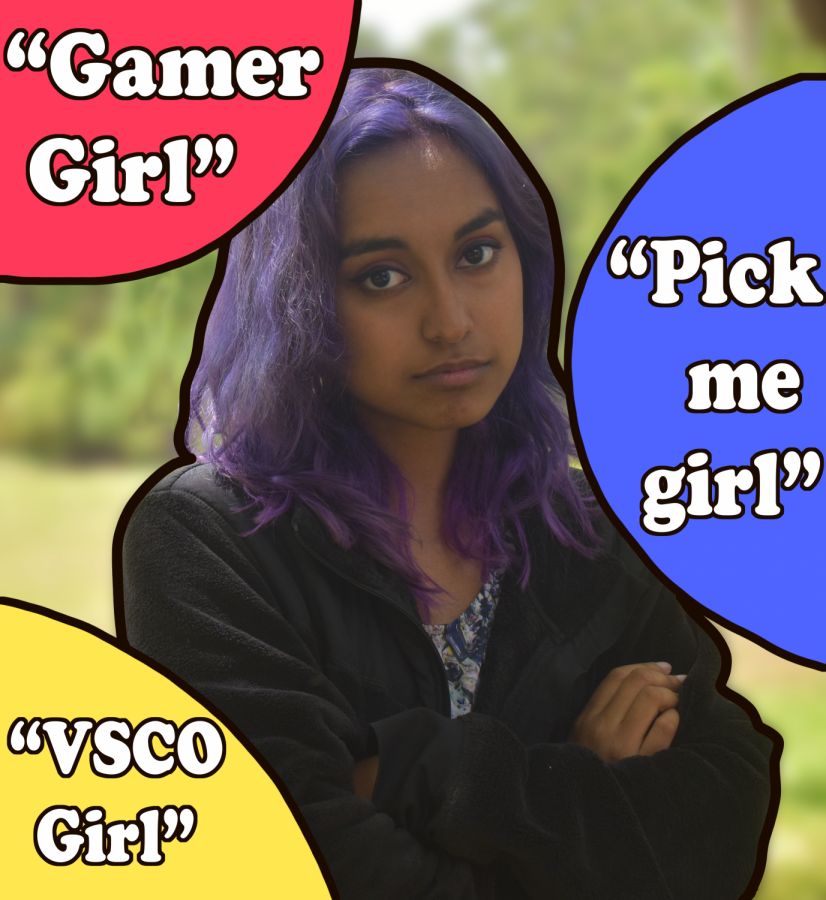Which Girl Are You?
photo by Bethany
Young girls are constantly faced with labels that define who they are.
The newest trend in Tiktok’s long line of “POVs” is the “pick-me” girl. For teenage girls, this stereotype is one of many entering the stereotype hall of fame alongside the VSCO girl, the not like other girls girl, the gamer girl, and the girly girl/tomboy.
A pick-me girl is a girl who makes it a point that, unlike the average teenage girl, adheres to traditional gender roles like cooking, cleaning, and always being presentable, essentially a 1950s housewife. Most importantly, all the traits listed above are only for male validation.
This pick-me girl trend is more than just a funny way to tease a type of person everyone has encountered. It is an incorrect perception that everything that makes up a teenage girl is simply reduced to their desire for male attention.
Stereotypes can be extremely harmful; by generalizing and reducing girls to an archetype then bullying those archetypes, girls have no choice but to feel shame for their interests or personalities. Girls will feel pressured to change everything about themselves and bottle up their real selves in fear of becoming the archetype everyone hates. They are no longer able to have individual ideas without being scrutinized for them. Titles like “pick me” have become a way to shame girls for their existence and shut down any idea of a woman having opinions or interests independent of “wanting a boyfriend”.
Any girl who may have interests that are male-dominated like video games or sports can be labelled a pick-me. A girl who is right-leaning or conservative can be labelled a pick-me. A girl who enjoys cooking or cleaning can be labelled a pick-me. This shows that girls can not just like things because they like them, but rather because they want others to like them. It does not matter if a girl dresses up every day because it makes them feel comfortable or secure. It does not matter if she likes video games as a way to blow off steam and have fun; the stereotype trumps their reasoning.
It isn’t only one kind of person who perpetuates the generalizations of young girls. In fact, a lot of young girls are the ones defining the stereotypes as a way to make fun of other girls. It is obvious that this is so ingrained into society that it is considered a fine thing to do. Young girls, like any other person, have multiple sides and are more complicated than a want for a boyfriend. It is disappointing to see young girls who have been stereotyped themselves perpetuating those stereotypes and bullying other girls. And for what? For humor? To make people feel bad for wanting a boyfriend or liking something? Young people should be supporting one another and accepting their individuality.
Your donation will support the student journalists of Hagerty High School. We are an ad-free publication, and your contribution helps us publish six issues of the BluePrint and cover our annual website hosting costs. Thank you so much!


